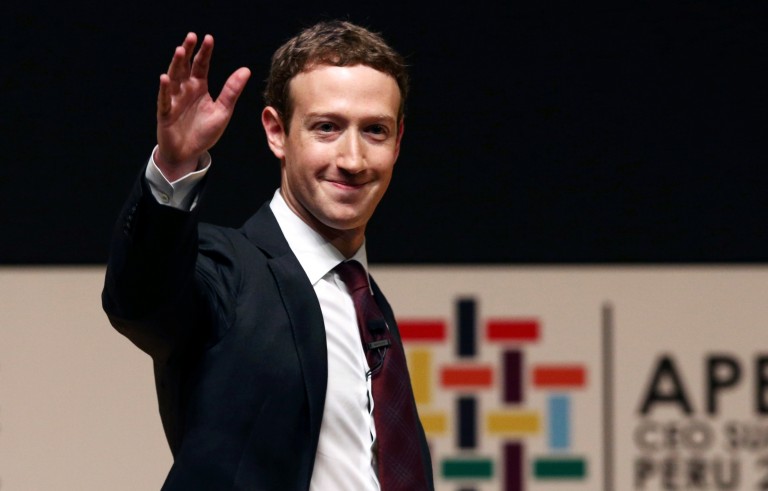HARI SREENIVASAN, PBS NEWSHOUR WEEKEEND ANCHOR: Facebook CEO Mark Zuckerberg has laid out his vision for the social network's future in a nearly 6,000-word manifesto he posted on Thursday. Called "Building Global Community," Zuckerberg called for more connectedness to empower people to combat social ills.
For more, I'm joined by Kara Swisher, executive editor of the news site Recode, who spoke with Zuckerberg about his essay.
Now, worth noting, the social network has 1.8 billion people —
KARA SWISHER, EXECUTIVE EDITOR, RECODE: Yes, a lot of people.
SREENIVASAN: — a quarter of the planet. But why is it a big deal? There are shareholder letters written all the time by companies.
SWISHER: Uh-huh. Well, he didn't write it to shareholders. He wrote it to employees of Facebook. And so, that was an interesting thing. And I think he wrote it for the general public, too. It wasn't for investors and Facebook, certainly not from reading it. It wasn't about investments or anything about their business, but more about their soul — the soul of the company.
SREENIVASAN: Yes. You know, one of the things that seems to strike out is that there is this in the interest of global connectedness. He's also speaking against what we are seeing as a nationalism and isolationism.
SWISHER: Absolutely. Yes, it's interesting. And he's trying very hard to thread a very thin needle. He didn't use the word "Trump" anywhere. He insisted that he's been working on this idea for years.
But there was one line I think in thing that said there was never a controversial thing, that connection — global connection was controversial, essentially. That's what he was saying. And so, by saying that, you are saying, why is connection controversial?
SREENIVASAN: Yes.
SWISHER: And that was sort of the beginning of the essay and then it won't there for a long, long time, on lots of issues around safety, around — everything from bullying to fake news, to how Facebook is going to let people handle their profiles going forward, to sort of an embrace of globalism.

SREENIVASAN: Yes. For the fake news part, we in this business care a lot about it, and building a more informed world. His first response to the allegations of the responsibility of Facebook in all this was, "What? No, we didn't do any of this. Not us."
SWISHER: Not us. I call it the "what" shrug (ph). Right?
SREENIVASAN: Yes. And now, it seems to have shifted. At least he wants to be part of the problem, which means he's sort of implying he was part of the problem in the first place.
SWISHER: Yes, exactly. So, he — you know, I think in the beginning he was asked about it, and he shrugged it off that it wasn't a big deal, except that every indication is that most people get their news from Facebook. So, even as he doesn't see himself as a media company, he doesn't see Facebook as a media company, it is. It's a media distribution company for sure.
And so, I think a lot of people reacted to that badly and said, wait a minute. Like everybody gets their news, and some of this news is fake, and don't you have a responsibility to have some control over your platform or do you just want it to be this toxic waste dump that it's becoming, sort of like Twitter. Twitter is sort of a free-for-all.
And I think Mark is looking get somewhere in between, not take full responsibility, but least acknowledge that there are some implications of what Facebook does.
SREENIVASAN: In this, he's trying to almost build this connective tissue, a layer of infrastructure between other layers of infrastructure, between it's the sort of thing that would be between our church and our school and everything else would be on Facebook which, of course, is good for business.
SWISHER: Sure, absolutely. You know, the funniest headline was Mark Zuckerberg's solution for the world crisis is more Facebook. You know what I mean? If we could only Facebook together, we'd all get along and have common ground.
And he did talk about this idea of polarization, even within the Facebook system, is that you hang with your — this filter bubble that you hang with your friends and family and only people who are like-minded and you don't get out and see other people.
And I think that was the interesting part, is how do we connect you with more points of view? How can we connect you with different people? How come we give you a wider view point from your world? Which I think was different, because Facebook has been organically friends and family and some interests. But it's largely friends and family and people like you.
SREENIVASAN: Yes. Kara Swisher from Recode — thanks so much.
SWISHER: Thanks a lot.












